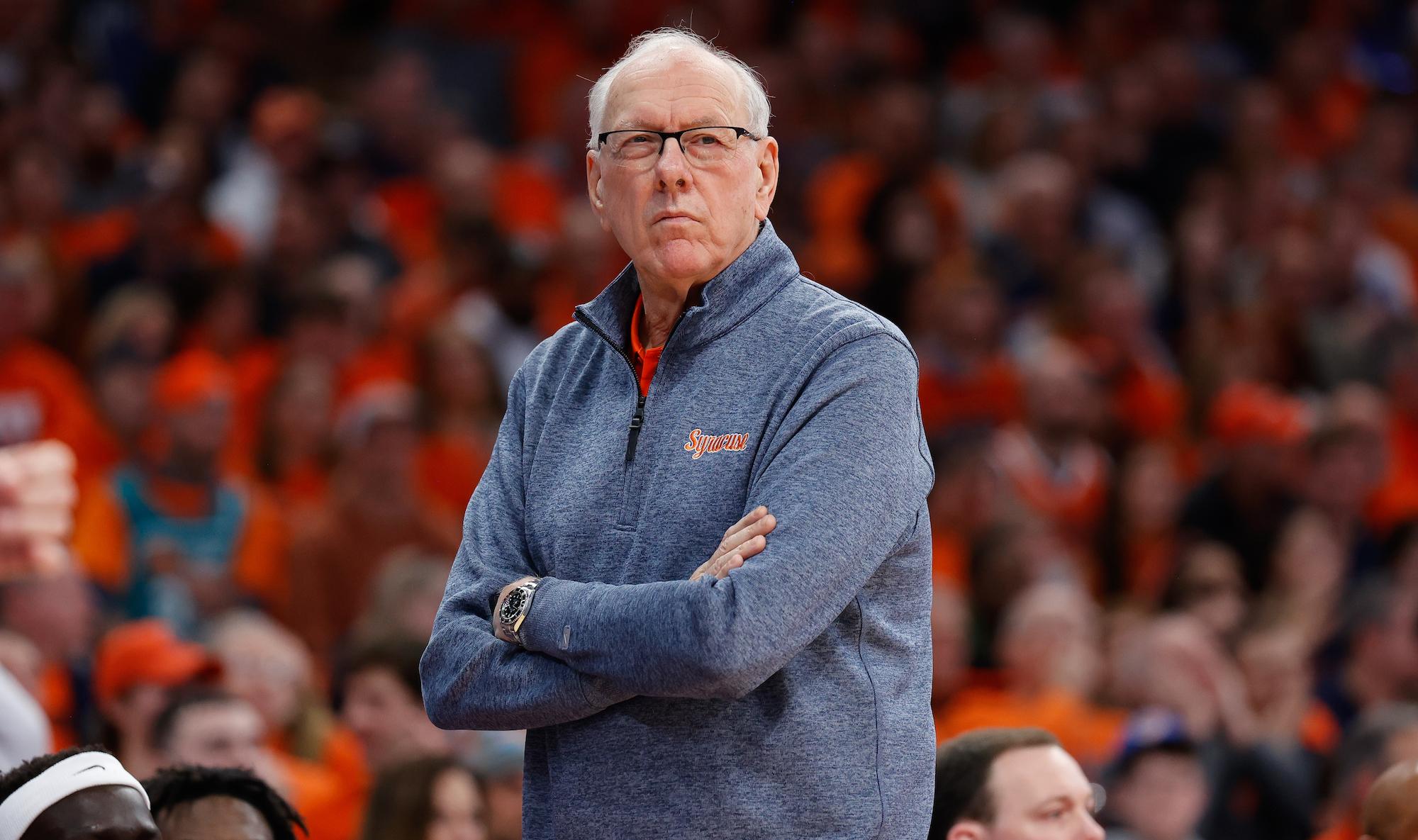Jim Boeheim played his hand too well, as it turned out. Even the most sympathetic of views afforded him as he was shown the door he was marching toward at Syracuse allowed that his departure/dismissal ruined the sympathy he might otherwise garner, by adhering too devotedly to his public image as the guy who lived almost eight decades on an all-lemon diet.
He had his legion of detractors ... and several legions after that. He also had his supporters who based their admiration on the fact that he lasted 46 years being devoted to his cultivated image as a rectal aperture with glasses. They would admit that he was too devoted to impersonating a strangulated hernia to garner much sympathy, but he owned Syracuse's social and cultural center for more than four decades, right up to the point where the wins he gained no longer neutralized the stomach acid he emitted.
But while I suspect one or several of the comrades here will eviscerate him more for his aggressive avoidance of likability, his embrace of unpleasantness as a schtick is a fascinating public image to choose. There is no real comp for Jim Boeheim in this; even Bill Belichick has submitted to an NFL Films hagiography and occasionally has consented to serving on football history panels for the NFL Network. He still seems mostly granite-based, but he can be almost charmingly engaged on some topics; he is famous for doing 10 minutes on long snappers based on an innocent question and for meaning every single word.
Indeed, the only approximate Boeheimista left in the coaching business today is probably Philadelphia Flyers noodge John Tortorella, who seeks annoyance as a tactic as much as Boeheim does but with much less success as cover. Like Boeheim, Tortorella's championship was nearly two decades ago, and he has since been known mostly as an overhead bile sprinkler ever since. Even his time on ESPN was mostly him playing to type as a fun extinguisher, and while you gotta be who you gotta be, eventually your image swallows you and you become your portrayal. Even the charming bits get subsumed under the need to seem like your shorts are perpetually riding up toward your scapula. Coaching is in some ways acting, but the problem with acting is that eventually you become your most famous character, especially if you keep playing the same role.
Boeheim played the last sourball in the jar forever, all the way up to his farewell presser after Syracuse lost in the ACC Tournament to Wake Forest on a buzzer-beater three. In it, he was pressed to clear up his last game by chiding a reporter, "I gave my retirement speech last week, and nobody picked up on it," and taking a dismissive swipe at the school by saying, "The university hasn't offered me anything, whether to work or do anything at the university. That's their choice." Even if he didn't mean to, he left the worst possible interpretations on his departure, which might have been one more performative kabuki to add to his stereotypical dyspeptic nature. If the reporters got the interpretation wrong, it's as if he wanted them to do so, and if they got them right, he could still blame them later if needed. Yet he still got the benefit of the rhetorical doubt from the headline writers who described his job-leaving as him "not returning," rather than either retiring or being fired. Clarity was a luxury in which he rarely trafficked, using it instead as proof that those who covered him understood nothing—not in 1976, and not Wednesday.
Whatever Boeheim’s inner qualities, which we are assured by his hagiographers were evident to those who knew him well, he remained steadfast in keeping his circle tight— probably too tight. Unless he is one of those rare figures who genuinely doesn't care how he is portrayed by an industry that defines good and evil with the same yard-wide roller, he will end up marked as we have marked him here, as the guy who needed you to think the worst of him because his contempt for you included your judgments. Maybe there is a level of satisfaction in that for him, but if he wants something that values him more highly than the sendoff he gave himself, that ship may have sailed. Bob Knight went the same way, and will always be thought of as less than he should have been. If reputations matter, Jim Boeheim sold his cheaply. And if he was trying to make the point that those who make those reputations are untrustworthy agents of caricature, he still let them define him without putting up enough of a fight. He is, in the end, what he decided to tell us he was. It was either a very small victory or a sizable defeat.






